Clinical Psychology - Doctoral Program
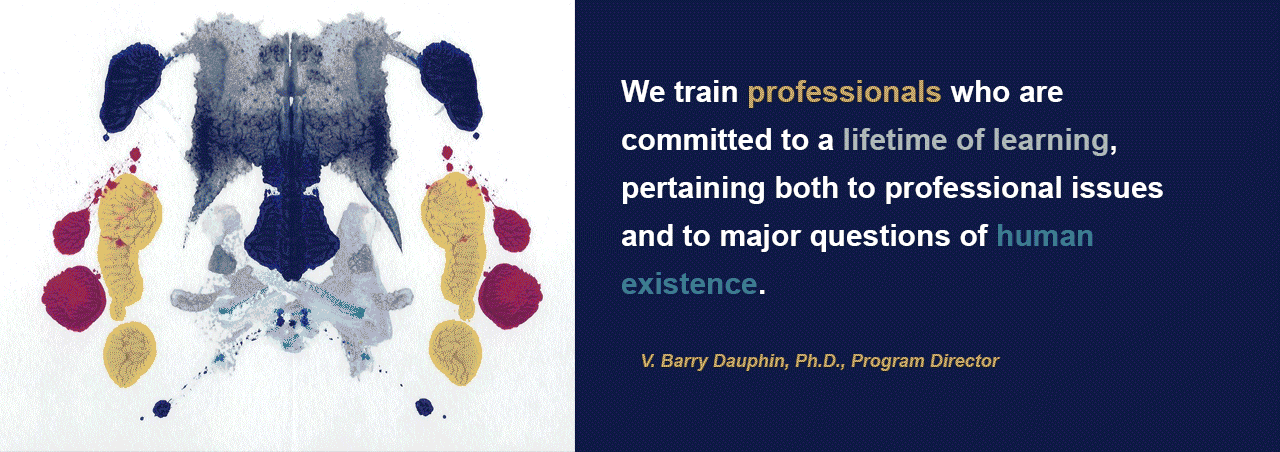
Ask us questions! We’re here to help.
Program Director
University of Detroit Mercy’s doctoral program in clinical psychology is a competitive course of study that trains you to provide psychological services to the community. This psychoanalytically-oriented program is based on ethical standards and a thorough contemporary understanding of research-tested psychological principles. University of Detroit Mercy's training emphasizes the inter-relationships among theory, research and clinical practice.
This 5-year, 96-credit hour program guides you through sequential, gradual and cumulative training experiences. Students in this program receive broad preparation essential to the practice of clinical psychology, as well as the development and execution of scientific research.
Opportunities for students abound throughout this program. Students not only participate in ongoing theoretical and applied research projects, but also to gain experience through substantive clinical contact. The program consists of coursework, practice, research and scholarship.
Clinical experiences offer opportunities to learn skills in a variety of settings throughout the Metro Detroit area while also integrating skills and theories which further the development of profession wide competencies. Scholarship is demonstrated throughout coursework via examinations and student papers. Within the context of a comprehensive examination process, you will be asked to demonstrate your ability to understand, integrate and communicate your knowledge of psychology in general and clinical psychology in particular. The dissertation is an opportunity to show how you contribute new knowledge to the field.
As you progress through the course sequence you will gain in-depth knowledge of psychology and its application to ethical clinical practice. Course content is rooted in a broad-based theoretical perspective that emphasizes classical and contemporary approaches to the psychoanalytic viewpoint. This viewpoint provides a thorough understanding of human behavior that is impacted by conscious and unconscious processes, personality and motivational factors and relational dynamics. These factors serve as the basis for psychotherapeutic interventions.
University of Detroit Mercy’s doctoral program in clinical psychology follows the scientist-practitioner model of clinical training, which includes the integration of science and practice. Consistent with the model suggested at the National Conference on Scientist-Practitioner Education and Training (January 1990), the program emphasizes the development of interlocking skills in scientific methodology and professional practice. Detroit Mercy Psychology Clinic provides hands-on clinical experience as early as the second year. In 2018 the program received a 10-year accreditation from the Commission on Accreditation of the American Psychological Association. The accreditation included a program-specific competency in Psychoanalytic Theory, Intervention, Assessment, and Research.
Graduate Record Exam (GRE) information, Fall Semester
Our program has eliminated the GRE General Test for the Fall admission cycle. We will NOT accept or consider GRE scores for applications. Applicants should NOT submit their GRE scores through ETS nor report their scores in the application portal or on their CVs or personal statements. If you have already submitted an application with GRE scores, we will not use the information for this application cycle.
After the Clinical Training Committee reviews applications, applicants with the best fit for the program will be invited to interview for admission to the program. Applicant interviewing will be virtual in March. Applicants who are offered admission will be invited to make a voluntary, in-person visit to campus prior to April 15.
Doctoral Candidate Research: Exploring Alternatives to Drugs for Anxiety in Healthcare Procedures, a Five-Year Research Project
Is it possible to reduce patient anxiety in healthcare settings without using pharmaceutical interventions? A team of three graduate students in Detroit Mercy’s Clinical Psychology Ph.D. Program, joined by a team of professionals, sought to answer this very question in an exhaustive literature review of 48,324 journal articles and 257 dissertations. Their research project took over five years to complete and resulted in two articles published in the highly regarded Journal of Alternative and Complementary Medicine.
Learn more about this Ph.D. research project and view full video
Accreditation Status
Doctor of Philosophy with a major in Clinical Psychology
University of Detroit Mercy's Clinical Psychology Doctoral Program is currently accredited by the Commission on Accreditation, American Psychological Association (APA), 750 First Street, N.E., Washington, D.C. 20002-4242.
-
Program Goals
The overall long-range goals of the program emanate from our training model and are directed toward the training of professional clinical psychologists who demonstrate and practice:
- professional competence and adaptability
- ethical standards and sensitivity to social justice issues
- scholarly contributions to the field of psychology
- service to the community
The long-range goals of the program are operationally defined through the identification of their related objectives and competencies. The successful completion of specific activities ensures that the goals of the training model will be achieved by all students.
The courses in the curriculum are designed by content and sequence to fulfill several goals. One goal is to acquire a firm foundation in psychology. A second goal is to acquire breadth and depth of knowledge in clinical skills. The curriculum is also designed to fulfill another essential goal: namely, that students be exposed to a variety of problems, populations, issues, and techniques of assessment and intervention. These serve as a basis for further development, professional growth, and innovation as students’ interests and the demands of their professional situations dictate.
-
How to Apply
Requirements for Application
We accept applications from students with either a baccalaureate or a master’s degree as a terminal degree, who have completed, as a minimum, the prerequisite courses (on either the undergraduate or graduate level) listed below: a) One term: Statistics b) One term: Theories of Personality c) One term: Abnormal Psychology d) One term: Developmental Psychology e) Two laboratory courses, for example: Physiological Psychology (strongly recommended), Perception Experimental Psychology (strongly recommended).Application Materials
When you submit your application online, you will be asked to submit the following:
- A Personal Statement - Your personal statement should describe pertinent aspects of your background and your aspirations toward becoming a doctoral-level clinical psychologist. In this letter describe your interests, your accomplishments, your interest in psychology, the issues in psychology that have attracted your attention, why you are applying to our program, and your goals for your professional life. The purpose of this letter is to give you the opportunity to inject something personal into the application materials. This letter helps us see something of the individual who has compiled the indirect indices of achievement that comprise the bulk of the application. Please do not send term papers or theses.
- Copies of all Undergraduate and Graduate Transcripts
- Graduate Record Examination (GRE) scores (verbal, quantitative, and analytical)
- Three (3) letters of recommendation from people familiar with your academic potential and achievement (for those with the master’s degree one person familiar with the applicant’s clinical work). Have one or more of your references comment on your suitability and talent for a professionally oriented course of study in Clinical Psychology. Applicants should have at least a 3.0 GPA in their previous academic work.
Completed applications must be submitted no later than January 1st for consideration to begin the fall term.
To Apply
Complete and submit your online application at: udmercy.edu/admission/apply.
- You will need to create an account the first time you try to log in.
- Select "Graduate U.S." from the list of choices.
- Select: Clinical Psychology Ph.D.
- Complete the rest of the application as it applies to you.
Note: The application fee is waived for online applications. You may request additional information about applications from:
Graduate Admissions
admissions@udmercy.edu
313-993-1245What Happens Next?
The program’s admissions committee reviews completed applications in February. Qualified applicants are invited for on-campus interviews in March. Admission decisions are made in March and April for the fall semester.
-
Financial Aid
The Clinical Psychology Doctoral Program has generally been able to offer half-time tuition credit to students during the first two years of training in exchange for performing teaching assistant duties. A limited number of credits are available for clinic positions starting in the 2nd and 3rd years. Students are expected to pay for the remainder of tuition and other expenses. Students should also contact the University's Financial Aid Office for additional information regarding other sources of financial assistance 313-993-3350.
-
Our Graduates
We expect our graduates to make contributions to the local community. In addition, we expect our graduates to contribute to society as a whole through their clinical work and scholarly contributions to the evolving body of scientific and professional knowledge.
We train professionals who are committed to a lifetime of learning, pertaining both to professional issues and to major questions of human existence.
Our graduates are employed in a variety of settings including independent practice, clinical and administrative positions in community mental health centers and social agencies, hospital practice, forensic work, research positions, and higher education. They also occupy positions of leadership in professional organizations and are involved in a broad range of professional activities.
Our graduates have gone on to do postdocs around the country, including:
- Stanford University School of Medicine
- Harvard Medical School | Massachusetts General Hospital
- Emory University School of Medicine
- Consortium for Advanced Psychology Training: McLaren Health System/Michigan State University College of Human Medicine
- Pediatric Behavioral Health at Cleveland Clinic Children’s Hospital
- Texas Scottish Rite Hospital: Pediatric Psychology
- Battle Creek VA
- South Florida State Hospital
- Loma Linda Veteran Affairs Medical Center in the Posttraumatic Stress Disorder emphasis area.
- Premier Behavioral Health Services
- Univ. of New Mexico - Center for Development & Disability
- Wayne State University Medical School
- Louis Stokes Cleveland VAMC - Integrated Primary Care
- John D. Dingell VA Medical Ctr.
- Walter Reuther Psychiatric Hosp.
- Memphis VA Hospital
- Henry Ford Health Sciences Ctr.
-
Professional License Disclosure
For more information on licensing requirements, including contact information for every state and territory licensing board, please see the Association of State Boards of Professional Psychology (ASBPP) webpage. All states require the completion of supervised predoctoral practicum hours and a predoctoral internship. These aspects are also required for the doctoral degree in clinical psychology at Detroit Mercy University. In addition to education requirements for the doctoral degree, however, many jurisdictions require post-doctoral professional experience. These requirements are beyond the curricular requirements described below.
Note that in some jurisdictions, in addition to being licensed as psychologist, an individual can obtain prescribing privileges. Detroit Mercy’s program does NOT fulfill requirements for licensure as prescribing psychologists in those states and jurisdictions that allow for it. Typically, additional coursework in pharmacology is needed in addition to the doctoral degree. Note that the District of Columbia has their own regulations aside from the states listed here. Detroit Mercy’s Clinical Psychology Ph.D. program meets D.C.’s requirements (see https://dchealth.dc.gov/). Please see the ASBPP website for information about other U.S. territories and Canadian provinces.
 Review Requirements by State
Review Requirements by State
Faculty

Steven Abell
Professor of Psychology
313-578-0423
abellsc@udmercy.edu
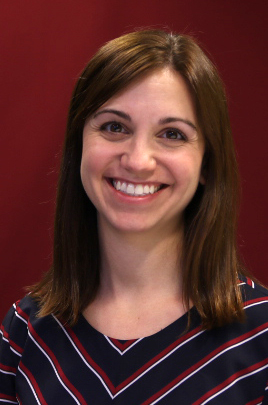
Kristen Abraham
Professor of Psychology
*
Department Chair, Psychology
313-578-0445
abrahakm@udmercy.edu

Libby Balter Blume
Professor Emerita
Professor of Psychology
313-578-0446
blumelb@udmercy.edu
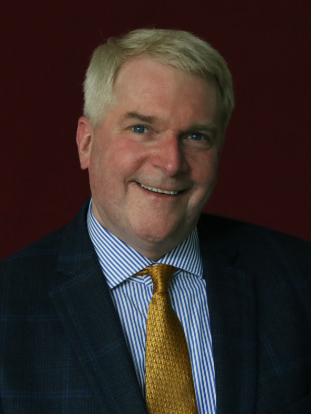
Barry Dauphin
Professor of Psychology
Director of Clinical Training for the Doctoral Program in Clinical Psychology
313-993-1650
dauphivb@udmercy.edu
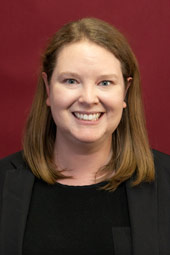
Emily Dowgwillo
Assistant Professor of Psychology
Associate Director of Clinical Training, Doctoral Program in Clinical Psychology
313-578-0562
dowgwiea@udmercy.edu

Lee Eshelman
Associate Professor of Psychology
Director of Master of Arts Program in Clinical Psychology
313-578-0410
eshelmlr@udmercy.edu

Preston Foerder
Associate Professor of Psychology
foerdepg@udmercy.edu
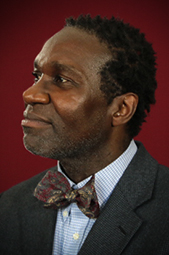
Harold Greene
Professor of Psychology
313-578-0456
greenehh@udmercy.edu
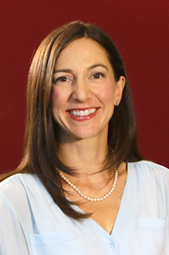
Erin Henze
Professor of Psychology
Director of the Specialist in School Psychology Program
313-993-1434
henzeee@udmercy.edu
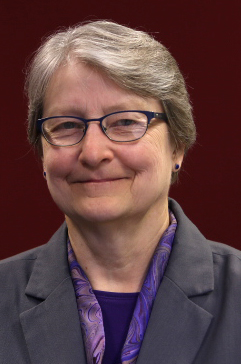
Elizabeth Hill
Professor Emerita
Professor of Psychology (retired 2021)
313-578-0405
hillelm@udmercy.edu
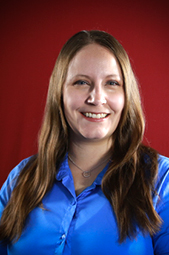
Rachel Lee
Associate Professor of Psychology
313-578-0433
leerl2@udmercy.edu

John Porcerelli
Professor of Psychology
Director, Detroit Mercy Psychology Clinic
313- 993-1442
porcerjh@udmercy.edu

Miao Qian
Assistant Professor of Psychology
313-578-0455
qianmi@udmercy.edu

Sarah Rowe
Assistant Professor of Psychology
313-578-0518
rowess@udmercy.edu
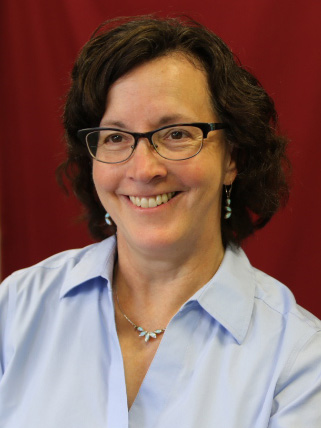
Linda Slowik
Professor of Psychology
313-993-1623
slowiklh@udmercy.edu

Carol Weisfeld
Professor Emerita
313-578-0481
weisfecc@udmercy.edu

Kathleen Zimmerman-Oster
Professor of Psychology
Director of Industrial/Organizational Psychology Master of Arts Program
313-993-1137
zimmerka@udmercy.edu
Administrative Support
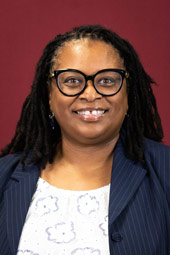
Valerie Williams
Administrative Assistant
313-578-0392
williavw@udmercy.edu

Nancy O'Shea
Administrative Assistant
313-993-3283
osheana@udmercy.edu


